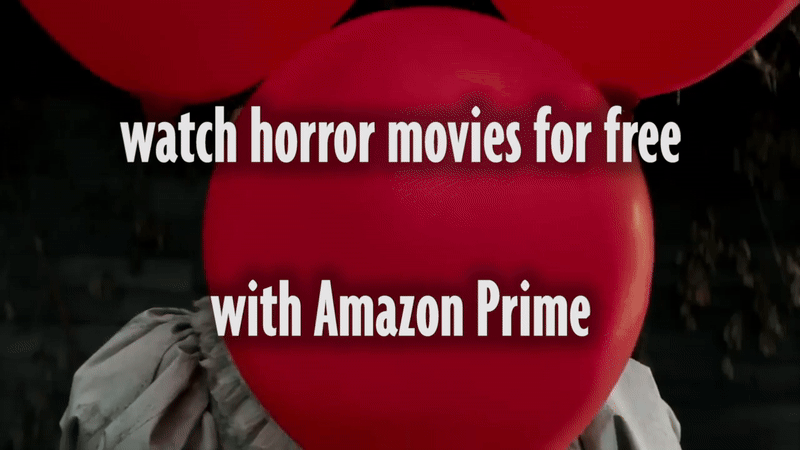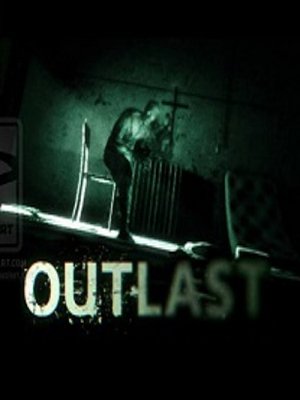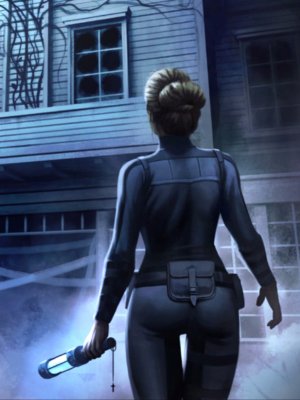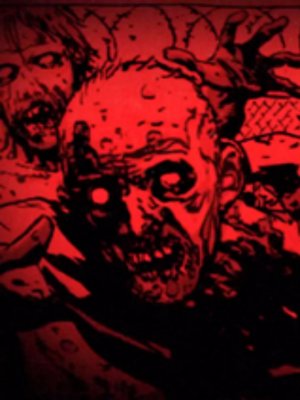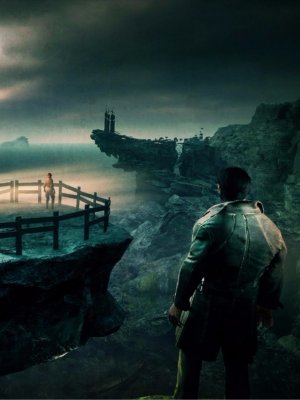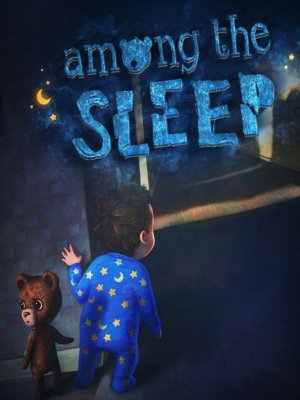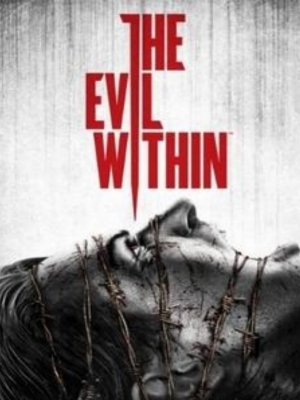Outlast 2
Outlast set a new bar for indie and mainstream horror when it came out in 2013. It made waves among the horror themed Let’s Players of the world, but was also critically acclaimed for its design and characters. It was so popular that a sequel was only sensible, and now we have Outlast 2. Instead of traveling back to Mount Massive Asylum, players are dropped in the middle of a deranged cult village and must traverse churches, mountains, forests, swamps, and mines to find their wife and escape. All the while, you record the horrors you witness and uncover the secrets of the cult, as well as face memories of your past. In story, Outlast 2 has no relation to its predecessor, but fans of the original will find that it definitely feels like an Outlast game. Right down to the horrific imagery made of repressed memories and subconscious anger. Outlast 2 is messed up, and thus many of the descriptions herein may also be messed up. Just a warning.
You are cameraman Blake Langermann, flying over a deserted canyon with your wife Lynn to investigate the apparent murder of a pregnant teenager. Unfortunately, the powers that be crash your helicopter and the two of you separated, leaving you and your surprisingly stable camera to crawl through the cult grounds alone. The progression of the story in Outlast 2 is very well done, and in the main story it never feels like the story is spoon fed to you. The original was fairly good at storytelling, but the nature of its story meant it had to do a lot more direct explaining. Outlast 2 doesn’t deal in Nazi pseudo-science, so it has more liberty to let its environment and character actions tell the story.

After a brief tutorial hike, you come across a “Christian” cult led by Sullivan Knoth. The believers worship Knoth as a prophet of God, and fearfully anticipate the coming of the antichrist. As a precaution, the cultists seem to have taken to murdering every newborn child and most older children, fearing any one of them could be the child of Satan.
Let the happy fun times begin.
As in the original game, you learn more about the cult not only through conversations and set pieces, but from notes you find scattered around. These aren’t direct explanations of the plot. Many are verses taken from the “Book of Knoth”, describing all manner of outlandish visions Knoth claims to have. Many are letters written by or to the main characters, delving more into their personality. All of them help piece together the story wonderfully, even after considering that there seem to be fewer notes overall compared to the original. Part of this is likely because the subject matter allows for more symbolism, but overall the storytelling in the main plot feels much tighter. The side plot however is not as engaging.
While you travel, Blake will frequently have invasive visions of his past in a Catholic school, where he is haunted by the memories of his friend Jessica who supposedly hung herself. The transition between the real world and the flashbacks are very well done, and some happen so seamlessly that it’s disorienting, but in a good way. The sequences themselves are terrifying and jarring, but the story within is far less interesting from the main one. Mostly, it’s predictable. You can guess pretty early that Jessica did not actually commit suicide, and you can infer from even the most subtle clues that she was being abused (likely sexually) by staff at the school. The issue is, even when you figure this out, the flashbacks carry on assuming you have not, and by the time it shows you what truly happened, it doesn’t feel much like a whammy.

The characters are part of what made the original Outlast so great, and the characters in Outlast 2 are as good if not better in most cases. The best of them is this games take on Outlast’s Chris Walker, a cultist named Marta. Marta, like Walker, will periodically show up when it’s the least convenient, and you must do whatever it takes to avoid her. She reminded me a bit of Pyramid Head, lumbering around with a fist full of rosary beads and a modified pickaxe, all the while reciting verses in a gravelly voice. I loved every interaction with her as much as it scared me out of my boots. You also run into the heretic leader Val, a former cultist of indeterminate gender who also has a memorable voice and design. Unfortunately, you don’t see Val as much as the others. And of course there is Laird, a leper who rides on a mute man named Nick and believes you to be the messiah.
Pretty much every character from Outlast 2 is memorable and manages to be both scary, entertaining, and in some cases even humorous. Unfortunately, the one exception to this is a very big exception, and that is the player character Blake. In the original Outlast and its DLC Whistleblower, the player character did not speak. He would occasionally scream, breathe and make other acceptable noises, but he did not talk. His communication was through written notes commentating on the scenes he found. People loved those players characters. With no words at all, most people recognized them as normal guys turned badass by the horrific situations they found themselves in.

Blake is, to be blunt, annoying. A rule of thumb for all horror developers: your player character should not self-narrate. If you can manage it, he should not talk at all. On a half dozen occasions, a dramatic and impactful scene was cut short by Blake deciding he must insert his inane commentary into the situation. Blake also has a tendency to announce out loud what he has to do next. This isn’t necessary, as an on-screen prompt (which half the time they provide anyway) would work just fine. This wouldn’t be such a problem, but Blake is our avatar. Our moving forward in the game requires us to want him to survive, but if I am uttering out loud “Blake you’re worthless” because I am now associating failure with him being annoying, and not with me being a failure, that impedes on the immersion.
Fortunately, Blake isn’t enough to bring the rest of the game down, hard as he may try. The gameplay is virtually identical to the first Outlast. Hurdle obstacles, crawl around obstructions, balance on ledges, all the basics. Like before, you basically keep your camera in front of your face at all times, occasionally using the night vision to see and securing batteries as you go (Knoth help you if you do not collect those batteries). Among the new mechanics are a sound detector on your camera which magnifies voices and sounds on the other side of doors and in your immediate surroundings. I found this wasn’t entirely useful except in a few key areas, usually when you’re given a prompt reminding you it exists. You also can find bandages now to heal your wounds, which you may be tempted to not worry about at first, but trust me, you will worry about it. Everything about the gameplay is functional and as joyously simple as the original, though the additions don’t add anything particularly revolutionary though.
What does seem more revolutionary is the AI. They are not necessarily more difficult now, but the AI may catch players off guard since they seem to have more complex behavior than before. My first encounter with this came when I locked myself in a house. I was just about to pat myself on the back for escaping my pursuers when suddenly one of them burst through the window. He promptly killed me, because I was too surprised to react properly. On another occasion, I was immediately caught by a heretic after I crawled under something and thought I was safe. Little did I know that many enemies can now crawl under things too, so I wasn’t actually safe. Once you figure out that the old means of escape don’t work, you quickly become a master of parkour, greater than you ever were in the original Outlast.

The game is graphically stunning, especially coming from a smaller studio. There are a few hiccups here and there (like the occasional book clipping through the building, etc) but you’ll hardly notice them. What Outlast 2 does exceptionally well is framing scenes. While the scenery may not be as pretty as Breath of the Wild, the way every set piece is presented is glorious, it’s like it was made to be photographed. Everything is setup so pristinely, with scripted events that flow right in without having to take the controls from you. Even when they do take the controls, they take advantage of every moment.
The same can be said of the sound design. I can unsarcastically state that Outlast 2 has some of the best sound design of any horror game, and possibly of any game I’ve ever played. It took the fantastic soundtrack and sounds from the original and improved them drastically.
All that beautiful presentation is framed around scenes that are magnificently horrific. This isn’t an entirely new revelation, since Outlast had some horrific scenes too, but Outlast 2 succeeded in outdoing its predecessor. To provide a few examples, fairly early on you watch a woman be tortured and killed on a medieval stretcher from a Catholic confessional while her husband watches in agony. Later on, Laird attempts to crucify Blake while you watch his followers pound the nails into your hand, your vision distorting from the pain while the controller vibrates with every new hammer. Shortly after that, they attempt to bury you alive. The player death scenes are fantastically bloody as well – they make Mortal Kombat look like Yoshi’s Island.
The thing about Outlast 2’s horror is that it is truly terrifying and gruesome, but it isn’t just blood and guts. The themes and insinuations are what make it cringe-inducing. It isn’t provocative solely to offend people by pushing easy buttons, and everything is purposeful. None of the gore ever feels superfluous, which can be difficult to pull off in bloodier games. What this amounts to is even while you are cringing, the horrific scenes won’t put you off the game itself.

In the end, Outlast 2 is horrifying. It possesses nearly all the charm of the original, and in some ways even more. The tension throughout is very real, and no matter how prepared you think you are, you will feel the mounting stress even on lower difficulties. It isn’t perfect, with the main problem being with the player character and his incessant need to never shut up. However, everything else is done so well that you can learn to ignore him and enjoy the experience. If Outlast 2 follows its predecessor, then any DLC it has may be even better.
Just don’t play on a full stomach.


